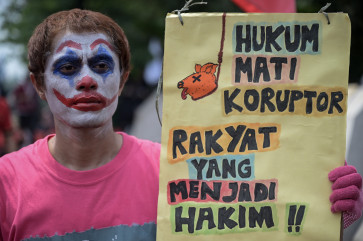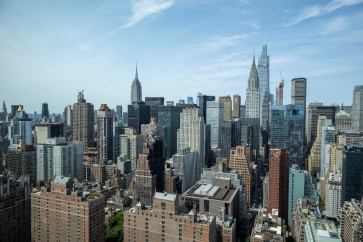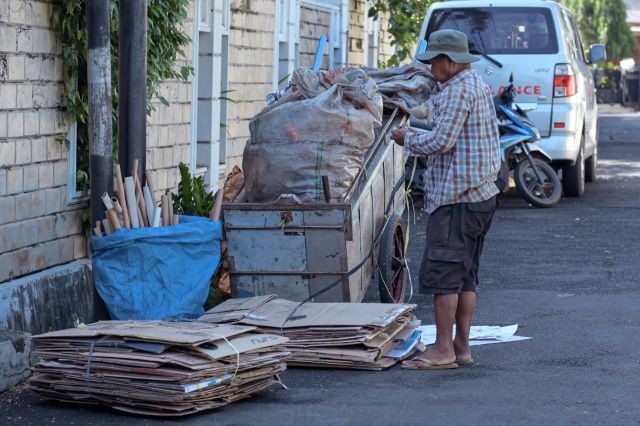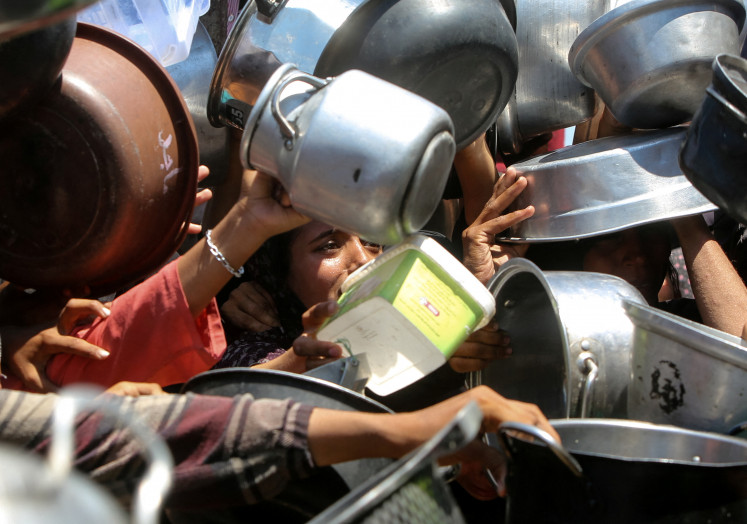Popular Reads
Top Results
Can't find what you're looking for?
View all search resultsPopular Reads
Top Results
Can't find what you're looking for?
View all search resultsDoha calls for legally binding deal for all
Climate talks go to the Gulf
Change text size
Gift Premium Articles
to Anyone
C
limate talks go to the Gulf. The annual United Nations Conference on Climate Change will take place in Doha, Qatar, Nov. 26–Dec. 7. After 17 conferences of parties that started in Berlin in 1995, this 18th round, COP 18, will be held in the Middle East for the first time.
The 2011 event, COP 17, in Durban, South Africa, produced the Durban Platform for Enhanced Action. The Durban Platform is the process to negotiate a new legally binding treaty that commits all countries to reduce carbon emissions. The intent is to get all 195 ratifiers to the UN Framework Convention on Climate Change (UNFCCC) to sign the not yet named new global regime by 2020.
Meanwhile, the single significant treaty the UNFCCC has produced so far, the 1997 Kyoto Protocol, will end its first commitment period on Dec. 31, 2012. This specific treaty legally binds 37 industrial countries that ratified it to reduce emissions by 5.2 percent from the average level in 1990 by the 2008-2012 first commitment period.
The United States, a major emitter, did not sign the Kyoto Protocol. This is due to domestic pressure, particularly from the fossil fuel consuming automotive industry that rejects obligatory emission cuts.
After Durban, what can Doha achieve? Rachmat Witoelar, the President’s special envoy for climate change, highlights three tracks for further negotiation and action at the Qatari capital: The Kyoto Protocol, long term cooperative action (LCA) and the Durban Platform.
On the Kyoto Protocol, governments at an intersessional meeting in Bangkok on Aug. 30-Sept. 5 agreed to have a second commitment period. In Doha, they will have to decide on the rules and mechanisms involved.
On the LCA that started from the 2007 conference in Bali, COP 13, parties need to complete work that began with the Bali Action Plan. That plan lists 10 actions from mitigation and adaptation to technological mechanisms and finance. One such mitigation work is the REDD+ scheme, the initiative to reduce emissions from deforestation and forest degradation in tropical forest countries like Brazil and Indonesia.
The third track in Doha is the Durban Platform. Countries will have to negotiate the time line that leads to the new legally binding global deal for all in 2015 that becomes effective in 2020.
Tazwin Hanif, the deputy director for sustainable development at the Foreign Ministry and coordinator of Indonesia’s LCA negotiating team explained that this new legal regime will replace the Kyoto Protocol, which expires in 2020.
Success for reaching any deal rests on political decisions. Not everyone can get all that they want. By itself, the Kyoto Protocol cannot prevent greater global warming. When he announced on Nov. 9 that Australia will sign the next phase of the protocol, Australian climate change minister Greg Combet said that carbon emissions from developed economies that signed the Kyoto Protocol cover less than 15 percent of total world emissions. Thus, much hinges on the new global treaty.
Since the 2007 Bali conference, Indonesia has been significantly active in yearly climate talks. What can Indonesia contribute in Doha? Rachmat, concurrently executive chair of the National Council on Climate Change (DNPI) and Indonesia’s chief delegate to Doha, has said that Indonesia will appeal to developing nations to do their fair share in voluntary emissions reduction, as Indonesia has done.
“I will also call on advanced nations to prepare for their give and take,” Rachmat declared.
The environment minister from 2004 to 2009 referred to the Kyoto Protocol under which industrial nations are obliged to reduce emissions, but developing countries are not. However, Indonesia took the lead among developing nations when President Susilo Bambang Yudhoyono announced in September 2009 that Indonesia has voluntarily committed to reducing carbon emissions. The targeted reduction is 26 percent from the estimated level of emissions in 2020. It could go further to 41 percent with international cooperation.
To communicate what it has done, Indonesia will hold a DNPI-organized Climate Change Day in Doha on Dec. 1-2. In addition, a side event on Dec. 5 will focus on Indonesia’s REDD+ activities and its national forest monitoring system. “Indonesia’s 15 years contribution to combat climate change: reducing deforestation” is the event’s theme.
Indonesia’s voluntary commitment to reduce emissions is tied to its ambitious REDD+ scheme. In Doha, Jakarta’s delegates will have to be able to explain the progress the country has made in its 26/41 game plan. Full REDD+ execution should start in 2014 when President Yudhoyono ends his second and final five-year term.
Yudhoyono vowed in September 2011 to dedicate his last three years in office “to deliver enduring results that will sustain and enhance the environment and forests of Indonesia”. The question that could be raised in Doha is whether Indonesia’s next president can be as green, even greener, or adopt a different color altogether.
The writer teaches at Dr. Soetomo Press Institute (LPDS), Jakarta.










